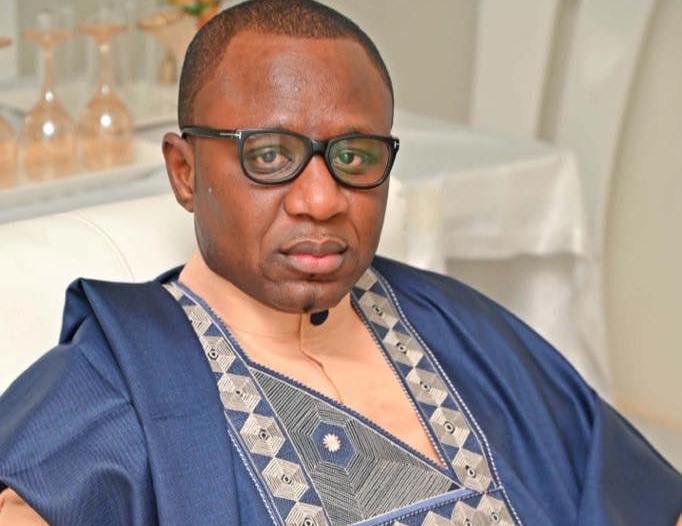Gambiaj.com – (Dakar, Senegal) – In a dramatic legal maneuver on Friday, prominent TFM columnist Badara Gadiaga narrowly escaped immediate detention after his defense team staged a walkout during his preliminary hearing, compelling the investigating magistrate to postpone proceedings until Monday, July 13.
The case, widely followed in Senegal’s media and legal circles, is quickly evolving into a politically charged legal drama. According to judicial sources, the public prosecutor has transferred Gadiaga’s case to the dean of investigating judges, after stepping over from the initial reasons for his summons, citing multiple serious charges.
These include dissemination of false news, discourse contrary to good mores, and offense against a person exercising all or part of the prerogatives of the President of the Republic – an apparent reference to comments Gadiaga allegedly made that may have targeted Prime Minister Ousmane Sonko or his cabinet.
More gravely, the prosecution has also cited potential violations of Article 257 of Senegal’s Criminal Code.
This provision relates to the receipt or solicitation of funds for propaganda deemed threatening to public security, a charge that aligns with the growing scrutiny around political activism on digital platforms in Senegal.
According to the Special Cybercrime Division (DSC), the investigation unearthed a digital platform known as GSIE, through which Gadiaga allegedly received unspecified funds.
While Gadiaga reportedly denied any illicit origin of the transactions, he admitted using the platform to transfer money from his bank account to his Orange Money account—a detail that prosecutors argue supports an additional charge under Article 80, paragraph 2, which criminalizes activities that may endanger state security.
The turning point in Friday’s hearing came when Gadiaga’s lawyers, Mame Baba Diop and Moustapha Dieng, requested a postponement of the initial appearance, citing Article 101 of the Code of Criminal Procedure.
The provision allows adjournment when conditions for a proper defense are not met. The judge initially rejected the request, prompting the defense team to walk out of the courtroom—leaving Gadiaga alone before the magistrate.
Legal observers say the lawyers’ bold strategy was likely intended to avoid what appeared to be an imminent mandat de dépôt (detention order), especially given the national security implications embedded in the charges.
Following tense exchanges, the judge eventually agreed to postpone the hearing until Monday, granting Gadiaga a temporary reprieve.
Political and Legal Implications
The case is unfolding amid a broader climate of heightened sensitivity in Senegal over freedom of expression, digital speech, and political dissent. Gadiaga, known for his pointed factual critiques and controversial commentaries, has been a polarizing figure in recent public discourse.
While his lawyers maintain that he factually mentioned a court judgment on the Prime Minister in his remarks, the state appears determined to suppress dissent speech under the guise of public order.
Analysts note that this case may test the limits of Senegal’s commitment to civil liberties under the new administration.
Although President Diomaye Faye came to power with promises of transparency and democratic reform, critics now question whether the government is adopting an increasingly intolerant stance toward dissenting voices.
With Monday’s hearing looming, the legal and political stakes for Badara Gadiaga – and for freedom of expression in Senegal – remain high.










